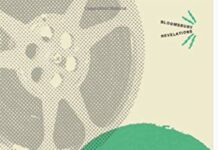
Ebook Info
- Published: 2009
- Number of pages: 432 pages
- Format: PDF
- File Size: 17.37 MB
- Authors: Gilles Deleuze
Description
An “introduction to the nonfascist life” (Michel Foucault, from the Preface)When it first appeared in France, Anti-Oedipus was hailed as a masterpiece by some and “a work of heretical madness” by others. In it, Gilles Deleuze and Félix Guattari set forth the following theory: Western society’s innate herd instinct has allowed the government, the media, and even the principles of economics to take advantage of each person’s unwillingness to be cut off from the group. What’s more, those who suffer from mental disorders may not be insane, but could be individuals in the purest sense, because they are by nature isolated from society. More than twenty-five years after its original publication, Anti-Oedipus still stands as a controversial contribution to a much-needed dialogue on the nature of free thinking.
User’s Reviews
Editorial Reviews: Review ” Renders palpable the metaphor of the unconscious as a worker, and does it in a brilliant, appropriately nutty way.” -The New Republic About the Author Gilles Deleuze was a prolific French philosopher and author of 25 books. A self-described “pure metaphysician,” he was a professor of philosophy at the University of Paris VIII and was known for a style that forced readers to reevaluate their philosophical assumptions. Deleuze, along with close friend and colleague Feliz Guattari, wrote a two-volume work on anti-psychoanalytic social philosophy called Capitalism and Schizophrenia. The first volume, Anti-Oedipus, is their best-known work.Felix Guattari was a French psychiatrist and philosopher. He founded the Society for Institutional Psychotherapy in 1965 and the Centre for Institutional Studies and Research in 1970. Trained as a psychoanalyst, he, along with close friend and colleague Gilles Deleuze, were instrumental figures in the anti-psychiatry movement, which challenged established viewpoints in psychoanalysis, philosophy, and sociology. The two wrote a two-volume work on anti-psychoanalytic social philosophy called Capitalism and Schizophrenia. The first volume, Anti-Oedipus, is their best-known work.Michel Foucault, one of the leading philosophical thinkers of the 20th century, was born in Poitiers, France, in 1926. He lectured in universities throughout the world; served as director at the Institut Français in Hamburg, Germany and at the Institut de Philosophie at the Faculté des Lettres in the University of Clermont-Ferrand, France; and wrote frequently for French newspapers and reviews. His influence on generations of thinkers in the areas of sociology, queer theory, cultural studies, and critical thinking are not to be underestimated. Among his many books were the Foucault Reader, Society Must Be Defended, and Great Ideas.At the time of his death in June 1984, he held a chair at France’s most prestigious institutions, the Collège de France. Foucault was the first public figure in France to die from HIV/AIDS.Mark Seem is a philosophical writer and translator. His work includes Anti-Oedipus, the first of the two-volume work Capitalism and Schizophrenia.Robert Hurley is a translator whose credits include translating the work of French philosophers Michael Foucault, Gilles Deleuze, Pierre Clastres, and Georges Bataille.
Reviews from Amazon users which were colected at the time this book was published on the website:
⭐If you’re looking to sleep with someone who doesn’t shut the **** up about Foucault or something, this book will get you there. Just wave it around on the L train between 1st Ave and DeKalb and you’re sure to attract the attention of someone with a trust fund who has a degree in liberal arts and shops at thrift stores. Good luck and have fun!
⭐As far as the order, it came in a timely fashion – although their are some minor typos in the press.As far as the content of the book, I have mixed feelings – this book is a hot mess. The best thing anyone could say about it is what Foucault states in the preface, about the book being more a work of art than a great theoretical system (like Kant, or Hegel lets say). And I’ll accept the book as that, just art. The book starts off very strong, but, once you realize the authors are basically saying the same thing ten different ways, it loses its magic.The read itself can be difficult at times, but, it is very well paced, so that once you trudge through enough technical philosophy, things open up quite brilliantly – like having gotten through the forest into the open field. That feeling in-itself, ends up being a highlight of the book in a sense. The philosophy itself is messy, lacks focus towards the end, is packed far too much with neologisms, and in many ways ends up seeming unoriginal. The concept of a “Body Without Organs” aside – Essentially you have a Spinozist materialism that integrates itself with Freud, Marx, Nietzsche, and a bunch of others far too obscure for most readers to have any reference to. This is also a weakness of the text, as it is not very accessible (even to philosophers) in terms knowing whether the authors’ interpretations of these other writers are actually spot on, or not. This makes critical analysis a daunting task, coupled with the neologisms, and messy layout of ideas.Another critique is that (being someone who has worked extensively, and intimately with the mentally ill – most notably schizophrenics – for many years) I wonder about the depth of understanding of schizophrenia. Philosophy proper, yes – economics, sure – a properly thoughtful and empirical sense of schizophrenia? I am doubtful. Guattari, maybe – but I am very skeptical that Deleuze has any significant experience with schizophrenics, and in fact, in the text, most references to schizophrenia are from other peoples case notes/research – notably, the authors who themselves malign Freud. … I also have a hard time getting past the vast amount of undue credit given to Oedipus as an institution, and deeply engrained unconscious pattern, social, and individual.Still, if one approaches the book as a work of art, its fantastic, entertaining, and at times hilarious. All criticism aside, the book has a compelling sense of mystery that it instills, a wonderful aesthetic. This alone can bring me back to this book, for likely, the rest of my life. There are grand moments of detailed, original, philosophy (the Body Without Organs being a shining display), they are just, well, mixed in with a whole lot of other stuff that maybe the book could have done without.
⭐Arrived fast in excellent condition
⭐Let’s face it: if you are reading D&G, you probably were privileged enough to receive the best education at the top schools and colleges (present company included). I am a mental health clinician that works with schizophrenics regularly. I am also sympathetic to the anti-psychiatry movement, but I prefer philosophy that is helpful for the patient or client with little to no education or resources. This book has little practical value. However, it is a good book to peruse while smoking cloves and stroking your facial scruff, expensive espresso in hand.Don’t get me wrong- some of the ideas are profound. A-O articulates the difference between desire as production and desire as aquisition. Since Plato, desire has been conceptualized as lack or need. The authors present desire as production beyond the dialectic of desire as lack (I create because I want to, not because I have to). Also, the authors propose the various ways desire is colonized, decoded, territorialized, deterritorialized in capitalist societies. I found this helpful in considering ways that many of us “buy into” the American dream, the obsession with health and wellness, the pursuit of happiness, and various ways of “meeting our needs.”But overall, the work lacks very few connections with experience. I believe that if the ideas were translated into experience, it might be more productive (pun itentional). And I am a fan of Deleuze’s other works including Nietzsche and Philosophy and Difference and Repetition. In the latter, Deleuze has an excellent example of “swimming into a wave” to describe the process of learning. I think it’s too bad that A-O lacks such beautiful, experiential sections. As for the latter sections of A-O in which the authors describe schizoanalysis, I am very skeptical. Resistance? Not really. I’ve seen schizophrenics bashing their heads against a mirror.If you are looking for an adventure down the rabbit hole (full of word-play, obscure references, neoligisms, etc.), this is your book. If you are looking for philosophy that provides excellent insights on human experiences and living in the 20th/21st century, may I recommend Delueze’s earlier work, Heidegger, Merleau-Ponty, Gadamer, Foucault, and Levinas.
⭐This is a work of profound genius. The reviews here who have taken it literally have missed the point (sadly). This is a book about desire and its flow, cosmically, socially, culturally, tribally, economically, humanly, individually. It includes elements of economics (capitalism, marx) or psychoanalytic concepts (schizophrenia, Oedipus) as models/codes, territories and flows thereof, as tools/structures off of which they bounce their ideas – perhaps a lens through which to view the highly abstract nature of the sub/unconscious and their theory of desire, if you prefer.This book will change the way you think about the world – and agree or not with its thesis or commentaries, any book that does that deserves five full stars.
⭐New condition. Well packed. Arrived promptly.
⭐Shipped on schedule and book is in great condition as expected. It’s hard to read, but super interesting!
⭐I am only half way through this book, and it has been superb.Here is the quote that began to shift my conception of what psychoanalysis is:”The real is not impossible; on the contrary, within the real everything is possible, everything becomes possible. Desire does not express a molar lack within the subject; rather, the molar organization deprives desire of its objective being”(37).
⭐Written with a medical doctor, Felix Guattari, this is a terrific and playful as well as powerful work describing what might be the drives and misaligned judgments of schizophrenia- and how it penetrates all our lives, as well as the lives and art work of (for example) of Kafka who they write about with refreshing insight. Inspiing for artists and film makers, as well as for novel-writing and treatment of patients in the contained environment of the analytic session. It was a bestseller in france when it first appeared –
⭐Two stars given for the kindle version of this text. The kindle book is so badly formatted that it takes away any enjoyment one might have reading this text. Not content to tabulate the book so that pages and sentences are broken up so that the overall effect is higgeldy-piggeldy, it’s full of spelling mistakes too.At £4 I would expect something more professional.
⭐Interesting read
⭐So, apparently the MRP is ₹599 and they sold it for ₹674. This is theft. The quality of the pages are abysmally bad.
⭐The format of the Kindle version is basically unreadable. The book itself is very good.
Keywords
Free Download Anti-Oedipus: Capitalism and Schizophrenia (Penguin Classics) in PDF format
Anti-Oedipus: Capitalism and Schizophrenia (Penguin Classics) PDF Free Download
Download Anti-Oedipus: Capitalism and Schizophrenia (Penguin Classics) 2009 PDF Free
Anti-Oedipus: Capitalism and Schizophrenia (Penguin Classics) 2009 PDF Free Download
Download Anti-Oedipus: Capitalism and Schizophrenia (Penguin Classics) PDF
Free Download Ebook Anti-Oedipus: Capitalism and Schizophrenia (Penguin Classics)





